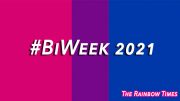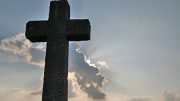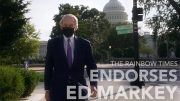 By: Paul P. Jesep*/TRT Columnist–
By: Paul P. Jesep*/TRT Columnist–
GLAAD released a study that identifies an enormous religious opportunity to further LGBT rights. GLAAD joined with the University of Missouri Center on Religion and the Professions to analyze 316 LGBT news stories. The findings showed that “three out of four religious messages came from people whose religions have formal policies opposing LGBT equality.”
Key findings of the report include:
- Conservative Evangelicals have an inordinate opportunity to convey their positions.
- Conservative Evangelicals are cited 50 percent of the time.
- Spokespersons supporting LGBT rights are usually from secular organizations or without religious affiliation.
- Positive messages regarding LGBT issues are overwhelmingly non-religious.
The findings underscore why LGBT rights have become a battle between religious interests and secular groups. The perception that the expansion of LGBT rights is an attack on religion stems in part from a lack of supportive religious voices being asked for comment by the media.
Before you get upset, think about the possibilities. There are thousands of pro-LGBT religious leaders throughout the country from many faith traditions and religious denominations who have yet to be heard. This is great news. A strong case can be made as a matter of fairness to media outlets to have a balanced religious perspective.
The vast majority of those who oppose LGBT rights do so because of faith or religion. They are not given a chance to hear and explore other religious interpretations. This is missing from the national discussion. You may think that religion should have no role in the matter. You’re right. It is not reality.
This is a chance for further progress. How? Ask your local religious leader to contact diocesan, regional or national faith leaders to reach out to major media outlets. If you’re a member of the United Church of Christ (UCC), for example, ask your pastor to contact the general minister and president of the denomination. He needs to be on the rolodex of newsrooms across the country as a religious contact person to comment on LGBT issues.
This may seem logical and obvious, yet there is an important administrative component that must be addressed. Someone has to get pro-LGBT religious leaders on call lists for the national media. This is not a one-time endeavor. News is instant. Reporters and program producers for radio and television have a lot to manage. There’s also job turnover. Contacts change. Keeping religious LGBT spokespersons on the media radar screen must be polite and persistent. Because most of New England supports LGBT rights, the emphasis must be elsewhere.
Radio, television and newspaper reporters need resources at their fingertips. As noted above, there are many who reach out to LGBT secular advocates. This wrongly shapes the discussion between God-fearing and wrongly labeled heathens.
The next time a national newscast on CBS, ABC, NBC, or FOX has a report or discussion on marriage equality or some other LGBT issue it would be helpful to have a representative from the UCC or another mainline pro-LGBT denomination. In other cases, there are Mormon parents who support LGBT rights who would make great national spokespersons.
Getting more religious leaders to speak on behalf of LGBT issues would neutralize and go a long way to furthering equality. GLAAD is doing an extraordinary job in advancing a positive religious perspective, but it can’t do it alone. Check out the report and think about how you can advance pro-LGBT religious spokespersons in the local and national media.
*Paul is an author, attorney, and a seminary trained, ordained priest in greater Albany, N.Y. E-mail questions to Dilovod@aol.com.







